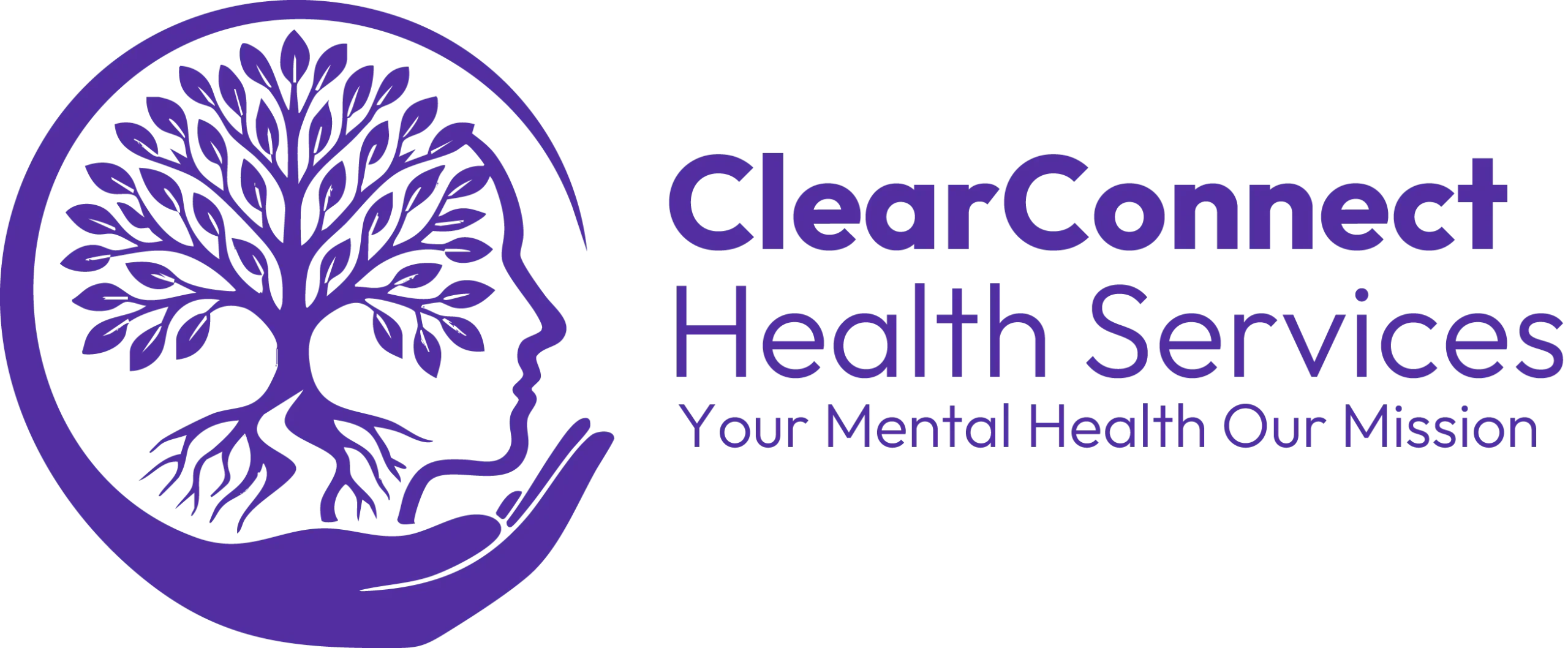OCD causes intrusive thoughts and repetitive behaviors. We manage obsessions and reduce compulsions through therapy, education, and medication, helping you regain control and improve overall daily functioning.
Services
Our Services
Evaluations & Diagnosis
We provide thorough initial assessments and ongoing follow-up evaluations to track progress, refine treatment plans, and ensure you receive consistent, effective care tailored to your unique mental health needs.
Psychotropic Medication Management
We prescribe and monitor psychiatric medications with care and precision, aiming to reduce symptoms, minimize side effects, and improve overall functioning for a more balanced and healthy mental state.
Psychoeducation
We educate clients and families about mental health conditions, treatments, and coping strategies to promote understanding, reduce stigma, and empower individuals to take an active role in their recovery. Understanding your mental health is part of healing.
Supportive Therapy
Supportive therapy helps you navigate life’s challenges, build emotional strength, and develop healthy coping mechanisms in a non-judgmental, compassionate environment designed to foster growth.
Telepsychiatry
Our HIPAA-compliant telepsychiatry services offer flexible, confidential, and accessible mental health care from the comfort of your home, ensuring continuity of treatment without sacrificing quality or connection.
In-Person Visits
We offer face-to-face care in a supportive, safe setting where you can receive comprehensive psychiatric services, build therapeutic rapport, and collaborate directly on your mental health treatment journey.
Behavior management
We provide structured support to help individuals manage challenging behaviors, improve emotional regulation, and build positive daily habits through personalized strategies.
Gradual Dose Reduction
Our team carefully guides individuals through step-by-step reduction of psychotropic medications, ensuring safety and stability while promoting overall mental and physical well-being and reducing unnecessary hospital admissions.
Stress Management
Our stress management sessions are designed to help you regain control, build resilience, and develop practical strategies for coping with everyday pressures. We provide a supportive environment where you can explore the root causes of stress and learn tools to manage it effectively.
Grief & Loss Counseling
Our grief and loss counseling offers a safe, supportive space to process the pain of losing a loved one or experiencing a major life change. We help you explore your emotions, understand the grieving process, and find healthy ways to heal and move forward.
Conditions We Treat

Generalized Anxiety Disorder (GAD)
GAD involves persistent, uncontrollable worry that disrupts daily life. Our care includes therapeutic support and medication management to reduce anxiety, promote calm, and restore emotional balance and confidence.

(Attention-Deficit/Hyperactivity Disorder) ADHD
ADHD affects attention, impulse control, and activity levels. We provide tailored treatment plans including therapy and medication to help manage symptoms, improve focus, and enhance daily functioning and relationships.

Social Phobias (Social Anxiety Disorder)
Social anxiety causes intense fear in social settings. We offer compassionate care to help reduce anxiety, build coping strategies, and increase comfort and confidence in everyday interactions and relationships.

Panic Disorders
Panic disorder features sudden, intense episodes of fear. We treat with evidence-based therapies and medications to reduce frequency and intensity, helping you regain control and prevent future panic attacks.

Obsessive-Compulsive Disorder (OCD)

Post-Traumatic Stress Disorder (PTSD)
PTSD develops after trauma and includes flashbacks, anxiety, and emotional distress. We offer trauma-informed care to help process experiences, reduce symptoms, and support long-term healing and emotional recovery.

Depression (Major Depressive Disorder)
Depression brings persistent sadness, loss of interest, and fatigue. We create individualized care plans including therapy and medication to restore motivation, improve mood, and support emotional and physical well-being.

Bipolar Disorder
Bipolar disorder involves mood swings between depression and mania. We provide stabilizing treatments and ongoing support to manage episodes, improve daily functioning, and enhance overall mood and quality of life.

Oppositional Defiant Disorder (ODD)
ODD presents with persistent defiance and irritability. Our treatment focuses on behavior modification, parent training, and emotional support to build cooperation, communication skills, and a more positive family environment.

Schizophrenia/Psychosis
Schizophrenia causes hallucinations, delusions, and disorganized thinking. We offer compassionate, comprehensive care with medication and therapy to manage symptoms, promote stability, and support improved reality-based functioning and independence.

Behavioral and Emotional Disorders in Children
These disorders affect a child’s mood, behavior, and relationships. We provide early intervention, family-centered therapy, and medication if needed to help children thrive emotionally, socially, and academically.

Conduct Disorder (CD)
Conduct disorder involves aggression, rule-breaking, and antisocial behavior. We use structured interventions and therapy to address underlying issues, improve behavior, and guide youth toward healthier social and emotional development.

Mood disorders
Mood disorders, including depression and bipolar disorder, affect emotional regulation and daily functioning. Treatment combines therapy, medication, and lifestyle adjustments to stabilize mood, improve mental health, and enhance overall quality of life for individuals.

Insomnia / Sleep Disorders
Insomnia and other sleep disorders disrupt restful sleep, leading to fatigue, irritability, and impaired concentration. Treatment involves cognitive behavioral therapy, medication, and sleep hygiene techniques to promote healthy sleep patterns and improve overall well-being.

Schizoaffective Disorders
Schizoaffective disorder features symptoms of both schizophrenia and mood disorders. Effective management includes antipsychotic and mood-stabilizing medications, combined with psychotherapy, to reduce symptoms and support everyday functioning and mental health stability.

Autism Spectrum Disorder
Autism Spectrum Disorder affects social communication and behavior. Early diagnosis and intervention, including behavioral therapies and educational support, help individuals develop social skills, communication abilities, and independence tailored to their unique needs.

BPSD
BPSD encompasses symptoms like agitation, aggression, and mood swings in dementia patients. Management focuses on non-pharmacological interventions, caregiver support, and appropriate medications to improve patient comfort and reduce caregiver stress.
